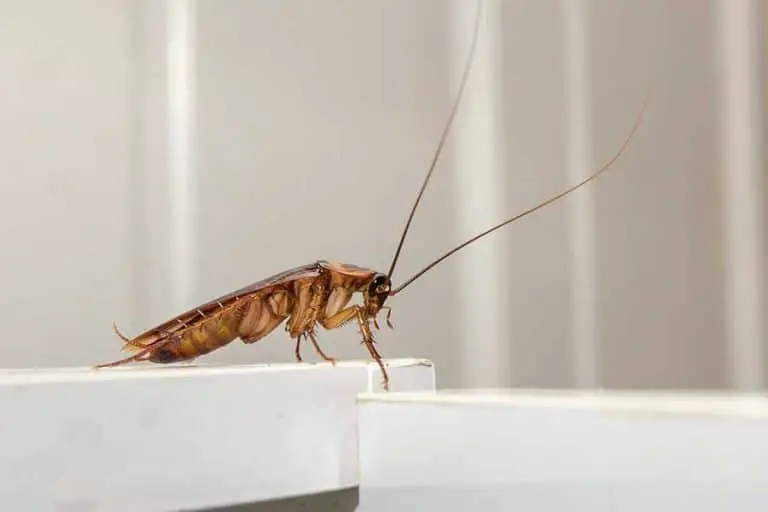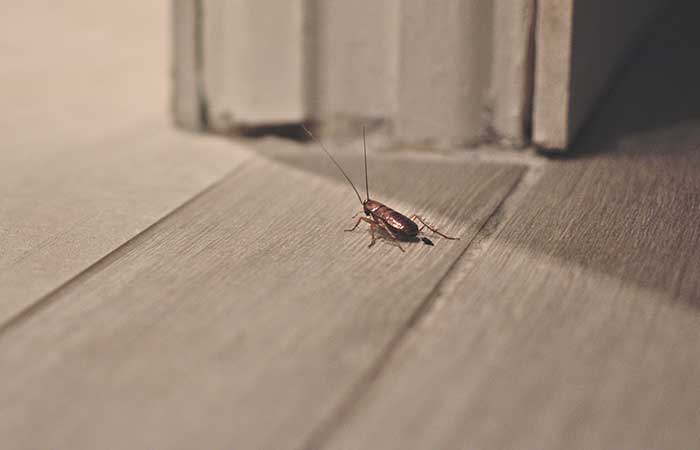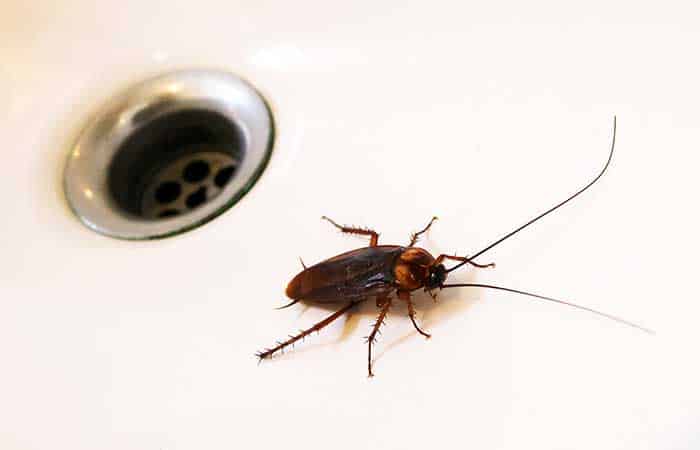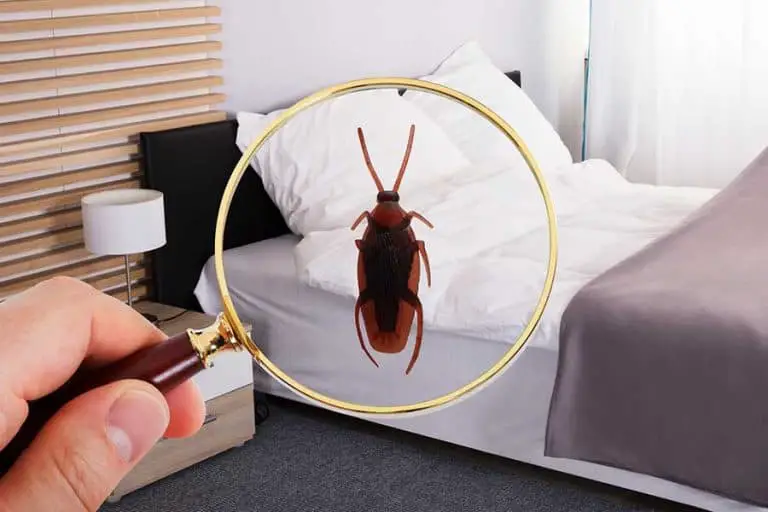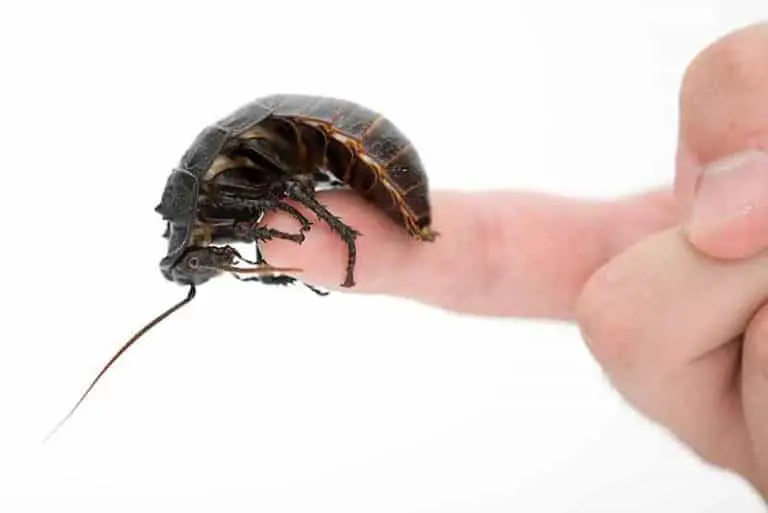Do Roaches Eat Bed Bugs?
Bed bugs and cockroaches are common pests and while they can be irritating, having a double infestation is a bigger problem.
It does make you wonder, though, do roaches eat bed bugs?
The answer is yes, they do. However, bed bugs breed fast, and cockroaches are unable to keep up with their growing population. Which means you won’t see any reduction in their numbers.
In addition, cockroaches and bed bugs live in different parts of the house; bed bugs are found in the bedroom while cockroaches stay in the kitchen or bathrooms. So it’s doubtful that you’ll see roaches feeding on these bugs.
Which Is Worse; Cockroaches or Bed Bugs?
Would you rather have a cockroach infestation or a bed bugs one?
Probably not a question you’ve asked yourself before, is it? Both insects reproduce rapidly and are difficult to kill, making them hard to remove.
Cockroaches are a nuisance for the following reasons:
- They carry diseases and, therefore, may spread them quickly.
- They may trigger allergies in some people.
- Cockroaches can contaminate your food.
On the other hand, bed bugs
- Will feed on your blood as you sleep
- Actively look for and survive on human hosts
- Bite and cause itchiness and swelling
We can also compare the two bugs regarding how easy they are to control.
Since cockroaches are mainly attracted to food, poison traps may be an excellent way to get rid of them. In addition, keeping your home clean may prevent them from entering your home.
Bed bugs are trickier to control since they feed on blood, so setting up traps is more challenging. Plus, it’s tough to prevent them from entering your home since they may come from anywhere.
They may find a way into your home via backpacks, luggage, and items placed on upholstered and soft surfaces.
We don’t know about you, but from the looks of it, bed bugs are way worse than cockroaches!
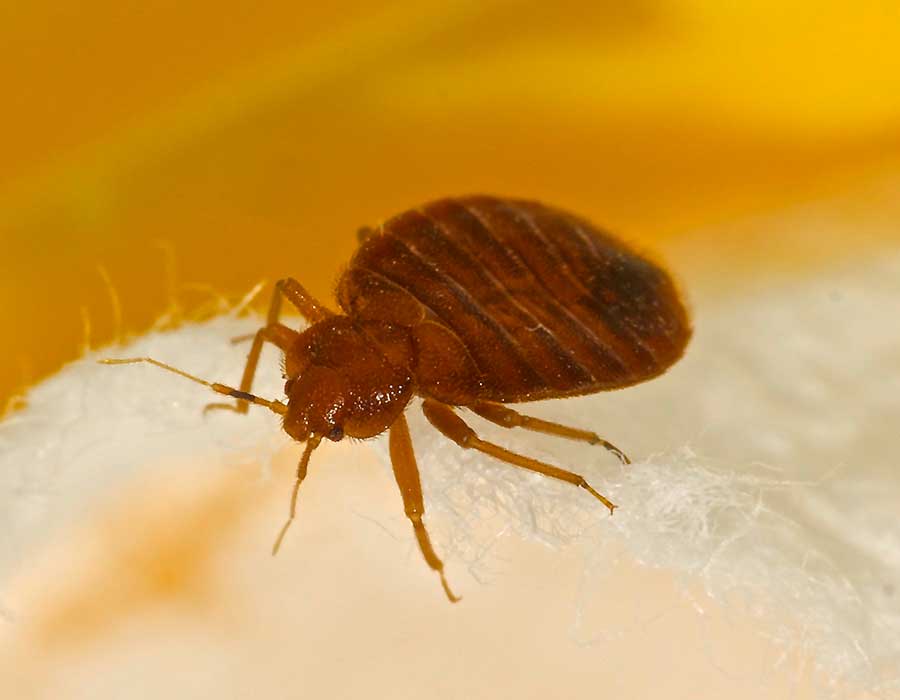
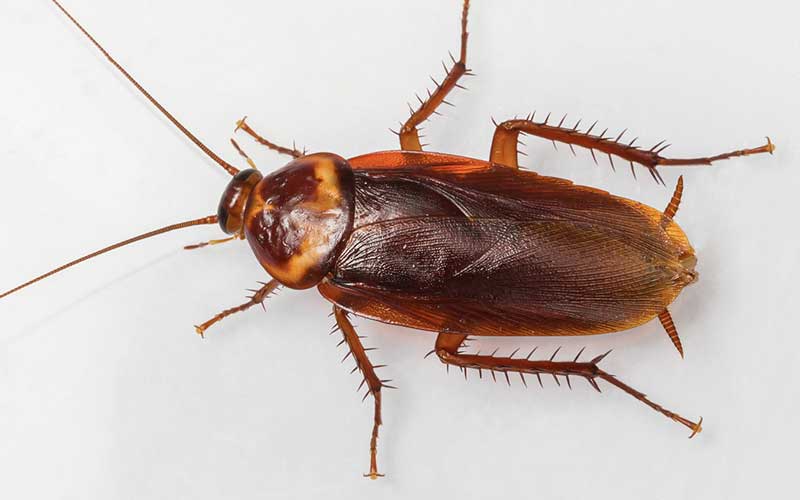
Do Bed Bugs Encourage Roaches?
If roaches eat bed bugs, is it possible that bed bugs may encourage roaches to thrive?
The short answer is no.
Bed bugs and cockroaches are generally found in different ecosystems, and it is implausible that they may exist in one.
Bed bugs form colonies where they can easily feed on blood, so you’ll find them in your bedroom. In contrast, roaches can be normally found wherever food is available placing them in different parts of your home.
Your house may have both simultaneously, but the presence of one insect doesn’t have anything to do with the other.
The only thing that may link the two together is poor hygiene. Clutter and lack of cleanliness cause insects to thrive; keeping your home clean will reduce insect infestation.
Two Birds with One Stone
Even if the cockroaches regularly find a way to feed on the bed bugs, it’s not exactly the ideal pest control solution you should be looking for. Therefore, you should find ways to simultaneously prevent, control, and kill these bugs.
One way to kill both cockroaches and bed bugs is by heat treatment.
In this method, your house is heated to a high temperature killing the bugs (about 120°C). Make sure to seek out professional help if you’re interested in this treatment.
This technique is also great if you’re trying to kill multiple pests in your home, as no insect will survive such a high temperature.
You can also use insecticides that work against both bed bugs and cockroaches.
Ways to Control Bed Bugs
You’ll know you have a bed bug problem once you see the bugs themselves, including the skin they shed.
You may also notice bloodstains on your blankets and sheets. These occur when you unknowingly crush the bed bugs in your sleep while they feed on you.
The best approach to getting rid of these pests is Integrated Pest Management (IPM). These practices involve using techniques that cause the least possible harm to humans and the environment.
The IPM approach is a set of common-sense practices to help control the pest population as best as possible.
For example, IPM for bed bugs would include:
- Seal off any entry points, openings, cracks, and crevices to prevent more bugs.
- Keep your bedroom clean and clear up any clutter to prevent the formation of any breeding grounds
- Keep your bed away from furniture and walls
- Vacuum every day, including molding, floors, and windows. Be particular about your mattress and reach every side and seam. Don’t forget about your furniture and box springs.
- Wash your bedding regularly. Don’t forget to put your sheets in the dryer for 30 minutes afterward.
Natural Remedies for Bed Bugs
Interested in trying out some natural remedies to eradicate these pests? This section will cover several home remedies that you can use.
Diatomaceous Earth
This is considered an effective method of killing most of the population. Since the Diatomaceous Earth is in powdered form, you can use it in the tiniest of cracks and crevices.
Bicarbonate Soda
Bicarbonate soda is thought to dehydrate the bugs and is believed to be abrasive enough to injure them. However, this approach needs to be repeated multiple times for it to work. It also means you’re going to have to buy lots of soda making this an expensive method.
Tea Tree Oil
This essential oil will not only kill the bugs but will prevent them from seeking out human smells, thereby protecting you as you sleep.
Vinegar
Everyone has vinegar readily available, making this method one of the easiest. Vinegar damages the bugs’ nervous system, killing them in the process.
However, it won’t do anything for the eggs.
Other Predators of Bed Bugs
If we’ve got you wondering what other creatures like to feed on bed bugs, this section will satisfy your curiosity. Here is a list of five such natural predators.
Masked Hunter
The Masked Hunter is part of the assassin bug family that hunts insects. They are normally present in dry and warm places making your home an ideal habitat.
These insects are named for their ability to camouflage themselves with dust by secreting a glue-like substance.
Nicknamed bed bug hunters, as they feed on similar small arthropods. The masked hunter is present in areas where there are a lot of bats and pigeons since these animals attract insects that masked hunters prey on.
However, the problem with this bug is that it has an excruciating bite. So watch out!
Centipedes
Centipedes are one of the creepiest skin-crawling crawlies out there. But, as creepy as they may be, centipedes are one of the natural insect predators in your home.
They feed on bugs, including spiders, bed bugs, and cockroaches.
Obviously, a centipede infestation is a problem, but if you have a few living in your space, it is best to leave them alone.
You’ll only spot them if they are searching for a meal. In addition, they are working hard to keep your home pest-free.
However, keep these centipedes in check as their bite is painful and poisonous.
Ants
All ants devour bed bugs, but the Pharaoh ants are notorious for their liking. However, ants reproduce very quickly, and if you’re not careful, you will have an ant infestation on your hands in no time.
Ants not only bite but can make their way into your food and can also spread diseases.
Lizards
Yep, other animals can help with your bed bug problem, and lizards, especially geckos, are experts.
But, you can’t expect your house lizard to live off a diet of bed bugs only since they eat other insects too, like mosquitoes.
Plus, lizards may carry organisms that can cause bacterial infections and therefore aren’t a suitable pest control method.
Dogs
Dogs are a man’s best friend, even when eliminating nasty bed bugs. However, although dogs may help locate these bugs and even eat them from time to time, they are not enough to control them.
Spiders
If you want to use an insect for this pest control, then spiders, particularly Thanatus flavidus. For starters, you don’t have to worry about these spiders spreading diseases if they bite you, which is a plus.
Secondly, other insects are found in different parts of your home, which means they won’t effectively feed on the bed bugs. On the other hand, spiders can easily stay in your bedroom, making them a more significant threat to the bugs.
Of course, unless you’re incredibly comfortable sharing your space with a spider, using it for pest control isn’t exactly practical.
Closing Thoughts
Both roaches and bed bugs are unbearable but using one to remove the other is not a good idea. In fact, using any of the insects mentioned above isn’t the solution to your bed bug problem, as these insects will only add to your worries.
If you notice a few bed bugs, immediately take steps to eliminate them. If none of your remedies work, then it’s best to call experts and let them handle it.
You must remove these creepy crawlies at once so that your home can stay safe and disease-free.

